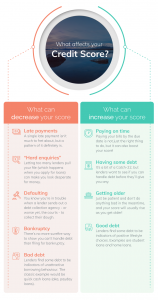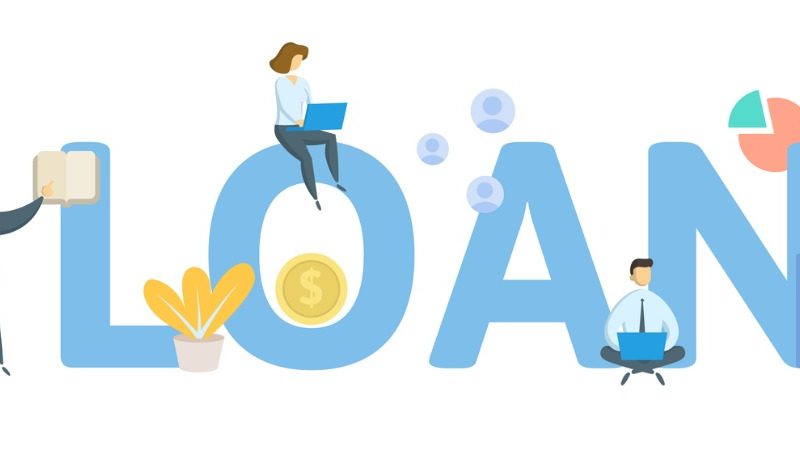Knowing what affects your credit score will give you the power to improve it
In the old days, only negative borrowing patterns – think late payments and defaults – could affect your credit score, also known as your credit rating.
However, in 2012, New Zealand implemented a scheme called Comprehensive Credit Reporting (CCR). That means positive borrowing patterns – like making your payments on time – can help your score tick back upward.
The positive and negative factors that affect your credit score
Before we jump into the nitty gritty, this infographic should give you a good idea of which behaviours to avoid and which behaviours to favour:
Negative behaviours that affect your score
Even with the CCR, negative borrowing behaviours still have an impact on whether or not lenders give you money. Negative examples include:
- Bankruptcies. These stay on your credit rating for two years after the bankruptcy ends or five years from the date you became bankrupt.
- Defaults. Debts worth $150 or more that are at least 60 days overdue may be reported to a credit reporting agency and stay on your file for five years.
- Late payments. Forgot to pay a bill? It shows up on your credit rating even if you settle the debt before it becomes a default.
- Writs, summons and court judgements. Any court appearances relating to debt and the resulting decision negatively affect your credit rating.
- Too many credit enquiries. If you apply for credit multiple times in a short space of time, it suggests you’re desperate for cash.
- Bad Debt. The bureaus consider certain types of loans to be indications of bad borrowing behaviour, for example quick cash loans. Even having credit cards can bring down your score.
Positive behaviours that affect your score
It’s not all bad news. Some credit information can help improve your credit score, such as:
- Repayment history. An established trend of punctual payments is a boon for your credit rating.
- Account opening and closing dates. Lenders can see where, when and how often you’ve been extended credit in the past.
- Type of credit facility. Whether it’s mobile phone bills, utilities contracts or other types of account, organisations can better understand your financial situation if they have more info.
- Your credit limits. Again, any information on your current creditworthiness among other lenders is useful for accessing credit from other organisations.
- Good Debt. Some types of loans will bring your score up. Home loans, student loans and business loans are all examples of loans that make you look like a responsible borrower.
How is your credit score calculated?
There are three major credit bureaus in Australia and each of them calculate their scores differently. Just look at the scales each bureau uses differ:
illion: 0-1000
Centrix: 0-1000
Equifax: 0-1200
Each of these bureaus have developed their own algorithms that take the positive and negative behaviours described in the previous sections, weight those behaviours according to the importance the bureaus place on them and calculate your score accordingly.
Although the bureaus don’t publish these formulas publicly, you can be sure they all largely consider the same positive and negative behaviours discussed.
You can also dispute entries on your credit file if you think there’s an error. You can read more about how to dispute records on your credit file in our guide to disputes here.
Credit Simple offers free, convenient access to your illion credit score. So feel free to have a dig around your file and get a feel for what types of activity the bureaus consider when calculating your score.
Credit Simple
Credit Simple gives all Kiwis free access to their credit score, as well as their detailed credit report. See how your credit score compares by age, gender and community and gain valuable insights into what it all means.
All stories by: Credit Simple



